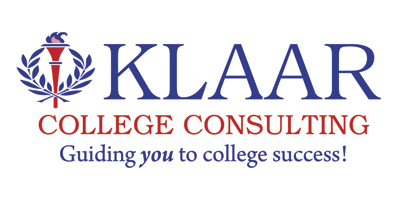Most experts consider junior year to be the most consequential in college admissions, and this may well be true. But senior year is nearly as important since it’s the year in which that you finalize and submit your applications. In both years, you face many choices that have ramifications beyond college and into your career.
It’s not just your years as an upperclassman that count. All four years of high school contribute to your ultimate success. The more you accomplish in the first two years, the less your burden will be in the last two years. The stress can be intense coming down the stretch, so we advise that you plan for each year of your high school career so that, at its culmination, you’re confident and looking forward to what’s ahead.
Steps to Take in Freshman Year
A study by the Brookings Institute found that 9th grade is the most critical year in the formation of a student’s potential. Your academic performance as a freshman sets the tone for the rest of your education.
1. Start Out with a High GPA
Freshman year counts toward your cumulative GPA and has an impact on your final class rank. It’s great for your GPA to be an rising trajectory in junior year, but it’s even better if your record has been so excellent since 9th grade that a rise isn’t even needed.. A high GPA that doesn’t need to be raised in junior year avoids much of the stress that can burden you as a junior.
2. Meet with Your Guidance Counselor
Guidance counselors play an essential role in your college admissions campaign. They’re busy people, so the responsibility is on you to schedule meetings with them. As a freshman, you can start a discussion about your admissions plan. At this point, getting to know the counselor and giving them the opportunity to know you is your main objective. You’ll be in contact with them often in the coming years.
3. Make the Honor Roll
Making the honor roll in 8th grade will give you the opportunity to take honors courses in 9th and 10th grades. Success in honors courses is likely to enable you to take AP courses as a sophomore and upperclassman. The more AP classes that you successfully complete with a grade of 4 or 5 on the exam, the more likely that you’ll be accepted by the colleges that you target. You may also earn college credits at a number of schools.
4. Begin Study in a Foreign Language
Most selective schools require applicants to have two to four years of a single foreign language. Freshman year is the time to commit to the language that you’ll study through high school.
5. Experiment with Extracurricular Activities
Immerse yourself in several activities that appeal to your interests. Join clubs, organizations, and intramural teams as you see fit. You’ll need time to identify those activities that truly interest you and for which you may also have an aptitude.
6. Use Summer to Your Advantage
Summer after freshman year is a great time to find a job. If you’re still too young, you can volunteer for a non-profit that appeals to you. A productive activity is to prepare for the PSAT exam. You may wish to begin to research into which types of colleges represent “best-fit” schools for you.
Steps to Take in Sophomore Year
In sophomore year, we recommend that you select honors classes in your strongest subjects. You should also assess your extracurricular activities and drop those in which you’re not too interested. Try new ones if necessary. Refine your admissions plan to focus on real choices that you’ll need to make as an upperclassman.
1. Take the PSAT
Taking the PSAT prepares you for the SAT in junior year. It helps you to identify your weak areas so that you can work to improve in them. If you release your name, address, and email to colleges, you’ll receive marketing communications from them.
2. Practice for the ACT
Pursue the PLAN Assessment Program offered by American College Testing if you plan to take the ACT exam instead of the SAT. This program assesses the efficacy your study habits, your academic progress to date, and the intensity of your interests. It also prepares you for the ACT exam itself.
3. Learn About College Admissions
Become familiar with college entrance requirements, especially at those schools that you may feel are potential best-fits. The sooner you know this the better prepared you’ll be. Your guidance counselor’s office will have information about admission requirements as will libraries, college websites, magazine rankings, and articles in the mainstream media.
4. Proceed on Your Academic Path
Work with your guidance counselor to make sure that you’re enrolled in the courses that best suit your educational goals. You’ll also want to be sure that you’ll have all of your graduation requirements, except senior English, completed by the end of junior year.
5. Use Summer to Add to Your Admissions Credentials
The summer after sophomore year is a good time to find a job. Working steadily every summer has appeal to colleges. Use your spare time to prepare for the SAT or ACT exam. You may want to take an elective summer course at your high school or at a local college in the field that you’re considering as a major. Admissions officials will look positively on this as an indication of your desire to learn and work hard.
Tune in next week for tips on Junior and Senior years!
A Certified Educational Planner with 20-plus years of experience, Dr. Klaar is one of the nation’s top college consultants and has led hundreds of students to college success! For more information: Call 803-487-9777 or visit the www.cklaar.com.



